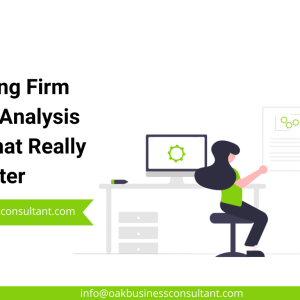A Holistic Guide to Real Estate Financial Budgeting
A Holistic Guide to Real Estate Financial Budgeting
It’s no secret that the real estate industry is in a state of flux. The market has changed dramatically in recent years, and many agents and companies have been struggling to keep up. One of the main reasons for this struggle is that many in the industry have failed to get their finances in order. In order to stay afloat in today’s market, it is essential to have access to professional financial budgeting. Although you can go about your real estate financial budgeting on your own, professional help is always better.
This article will provide a comprehensive guide to real estate financial budgeting, including why it is important, what methods are available, and how to implement them successfully.
Why is Real Estate Financial Budgeting Important?
There are a number of reasons why real estate financial budgeting is so important. First and foremost, it helps to ensure that you have a clear understanding of your finances. This is crucial in any business, but it is especially important in the real estate industry. With the ever-changing market, keeping track of your income and expenses can be challenging. Having a clear budget will help you stay on top of your finances and make informed decisions about where to allocate your resources.
Another reason why real estate financial budgeting is so important is that it can help you save money. Many people in the industry are not aware of the potential savings that can be achieved through proper budgeting. By taking the time to understand your expenses and income, you can make adjustments to your budget that can save you a significant amount of money over time.
Finally, real estate financial budgeting is important because it can help you make better decisions about your business. When you have a clear understanding of your finances, you will be able to make more informed decisions about where to invest your time and resources. This can lead to increased profits and a more successful business overall.
What’s the Best Time to Start Real Estate Financial Budgeting?
The best time to start real estate financial budgeting is as soon as possible. The sooner you get started, the better off you will be. However, it is never too late to start budgeting for your business. If you have been struggling to keep up with your finances, now is the time to take control and get your budget in order. Many realtors wait until they are in a financial crisis to start budgeting, but this is often too late. By starting early, you can avoid many of the problems that come with being behind on your finances.
What Questions Should You Consider Before Your Real Estate Financial Budgeting?
Before you begin real estate financial budgeting, there are a few essential questions that you should consider.
What is your goal? What do you hope to achieve by creating a budget?
Once you have a clear understanding of your goals, you can begin to develop a plan of action.
Another vital question to consider is:
How much time and money are you willing to invest in your budget?
Creating and maintaining a budget takes time and effort. If you are not willing to commit the necessary resources, it is unlikely that your budget will be successful.
You need to ask yourself if you are willing to make changes to your current real estate financial model. In order to save money, you may need to make some adjustments to the way you operate things in your real estate business. For example, you may need to cut back on certain expenses or find new sources of income. If you are not willing to make these changes, your budget is likely to fail.
Who is involved in the budgeting process?
Are you the only one who will be creating and maintaining the budget? Or, will you be working with a team of people? If you are working with a group, it is essential to establish roles and responsibilities from the beginning. This will help to ensure that everyone is on the same page and that the budget is being followed correctly.
What methods will you use to track your progress?
There are a number of different ways to track your progress when it comes to real estate financial budgeting. You can use Excel templates, software programs or consult a professional. It is vital to find a method that works best for you and your team.
How often will you review and update your budget?
Your budget should be reviewed and updated on a regular basis. This will help to ensure that it is accurate and that you are making the necessary adjustments. As your business changes, so too will your budget.
What Happens if You Don’t Follow Your Budget?
If you don’t follow your budget, there can be a number of consequences. You may find yourself in financial difficulty if you are not able to stick to your budget. This can lead to late payments, missed opportunities, and other problems. Additionally, if you don’t follow your budget, it is likely that your team will not take it seriously. This can lead to a lack of cooperation and communication among team members. Finally, if you don’t follow your budget, you may miss out on substantial tax deductions or credits.
It is important to remember that real estate financial budgeting is a process. It takes time and effort to create a successful budget. However, the rewards of having a budget are well worth the investment.
If you are ready to take control of your finances and get your budget in order, there are a few steps that you can follow to get started.
1. Determine your goals
You should know exactly what you hope to achieve by creating a budget. For example, do you want to save money? Increase your income? Improve your cash flow? Once you have a clear understanding of your goals, you can begin to develop a plan of action.
2. Understand your current financial situation
It is essential to take a close look at your current financial situation before you begin budgeting. This will give you a better understanding of where you are starting from and what changes need to be made.
3. Track your income and expenses
You need to know exactly how much money is coming in and going out if you want to be successful with real estate financial budgeting. There are a number of different ways to track this information.
4. Develop a plan of action
Once you have determined your goals and assessed your current financial situation, you can begin to develop a plan of action. This should include a detailed budget as well as a timeline for implementation.
5. Put your plan into action
Begin working on your budget and make the necessary changes to your spending and saving habits. Remember to review and update your budget on a regular basis.
Efficient Bookkeeping and Its Role in Real Estate Financial Budgeting
When it comes to bookkeeping and real estate financial budgeting, efficiency is critical. You need to be able to track your income and expenses in order to make informed decisions about your finances. This can be a daunting task, but there are a few tips that you can follow to make it easier.
1. Use technology to your advantage
There are a number of bookkeeping software programs that can make tracking your finances more manageable. These programs can help you to organize your information and make it easier to find what you are looking for. Or you can simply hire Oak Business Consultant’s expert accountant and bookkeepers. They have the knowledge and experience to handle all your bookkeeping needs.
2. Stay organized
It is important to keep your financial records organized. This will make it easier to find what you are looking for and make informed decisions about your finances.
3. Keep accurate records
Inaccurate records can lead to severe problems down the road. Make sure that you are keeping proper records of your income and expenses. This will help you to avoid any potential issues in the future.
4. Review your records regularly
You should review your financial records on a regular basis. This will help you to catch any errors or discrepancies. Additionally, this will give you a better understanding of your financial situation and allow you to make necessary changes to your budget.
Keeping Up to Date with the Government’s Real Estate Financial Budgeting Policies
The government’s real estate financial budgeting policies are always changing. Therefore, it is important to stay up to date with these changes to make the necessary adjustments to your budget. There are a few different ways that you can stay informed about the latest changes.
1. Check the government’s website
The government’s website is an excellent resource for information on their real estate financial budgeting policies. You can find a wealth of information on their website, including updates on any new or changed policies. This may vary drastically based on where you live. For example, in the United Kingdom, you would want to check gov.uk for this type of information.
2. Subscribe to a newsletter
There are a number of newsletters that you can subscribe to that will provide you with information on the latest changes to the government’s real estate financial budgeting policies. This is a great way to stay up to date without having to check the website constantly.
3. Contact your local government office
Another way to stay up to date with the government’s real estate financial budgeting policies is to contact your local government office. They should be able to provide you with information on any changes that have been made.
4. Hire a professional
If you want to make sure that you are always up to date with the latest changes, you can hire a professional to keep track of the government’s real estate financial budgeting policies for you. This may be a good option if you do not have the time or resources to stay informed yourself.
Keep an Eye on the Real Estate Megatrends
When it comes to real estate financial budgeting, it is also essential to keep an eye on the megatrends. These are the large-scale trends that can have a significant impact on the real estate market. Some of the megatrends that you should be aware of include:
1. The rise of the sharing economy and Real Estate Financial Budgeting
The sharing economy has been on the rise in recent years. This refers to the trend of people using shared resources instead of owning them themselves. For example, instead of owning a house, they may use a rental service like Airbnb. This trend is significantly impacting the real estate market, as more and more people are choosing to rent instead of buy.
2. The growth of the millennial generation
The millennial generation is the largest generation in history, and they are starting to come into their own. This is having a major impact on the real estate market, as they are more likely to rent than buy. They are also more likely to live in smaller spaces and seek out community-oriented living arrangements.
3. Changing demographics and Real Estate Financial Budgeting
The world’s population is becoming increasingly urbanized, and this is having a major impact on the real estate market. As more people move into cities, the demand for housing in these areas is skyrocketing. This is causing prices to rise and making it difficult for people to find affordable housing.
4. The rise of technology
Technology is having a major impact on the real estate market. For example, the rise of online real estate platforms like Zillow and Redfin has made it easier for people to buy and sell homes without the help of a traditional real estate agent. This is causing a major disruption in the industry and is changing the way that people buy and sell homes.
5. Economic instability
The world’s economy is becoming increasingly unstable, and this is having a major impact on the real estate market. For example, the recent recession caused a major downturn in the housing market. This is making it difficult for people to get mortgages and buy homes. It is also causing prices to fluctuate wildly, which makes it difficult to predict what the future of the housing market will be.
All of these megatrends have a major impact on the real estate market. Therefore, you should take them into account when budgeting for your real estate business.
Who is Oak Business Consultant and How they can Help You with Real Estate Financial Budgeting?
Oak Business Consultant is a leading provider of a variety of financial services. These financial services include financial budgeting, financial analysis, financial planning, financial reporting, financial modeling, accounting and bookkeeping, CFO services, business planning, and many others.
We have a team of experienced professionals who can help you with all aspects of your real estate finances. These experts will work with you to develop a budget that meets your unique needs and goals. We also offer ongoing support to ensure that you stay on track. Contact us today to learn more about how we can help you with real estate financial budgeting.





























